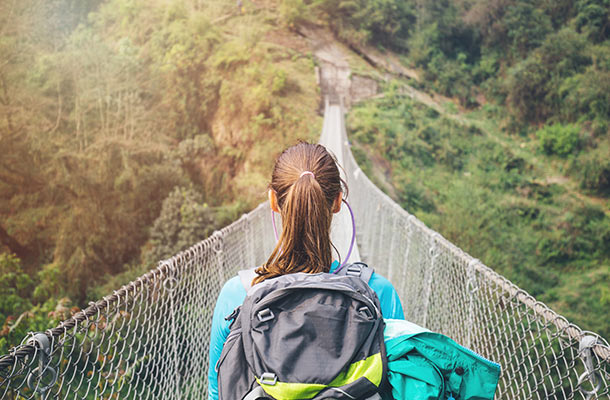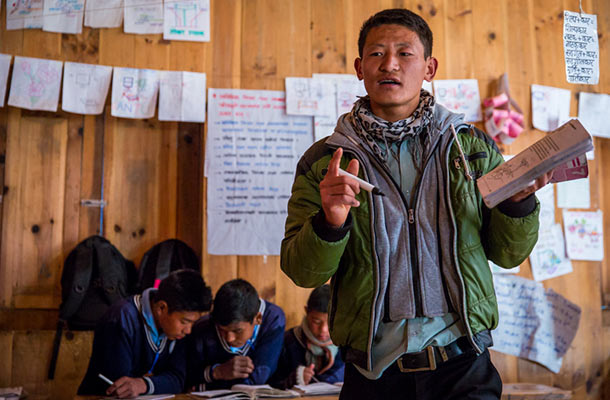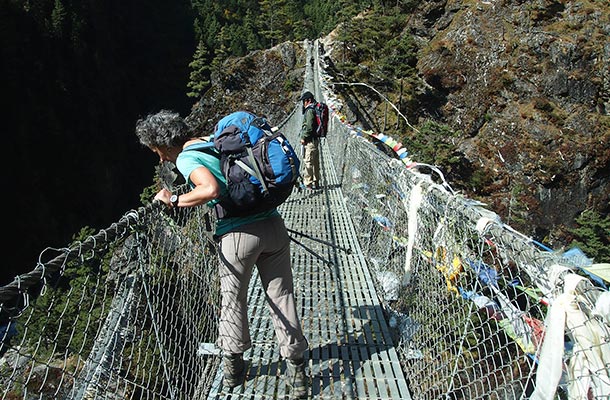Visas and Vaccinations Before You Travel To Nepal
Planning a trip to Nepal? Here’s a checklist of all the visa & vaccination requirements you’ll need before you go so you can focus on the momos and mountains when you’re there.
 Photo © iStock/AleksandarNakic
Photo © iStock/AleksandarNakic
Visas on arrival
Compared to a lot of other countries, especially neighboring India, China, and Bhutan, Nepal has a pretty liberal visa policy.
Visitors of most nationalities can obtain a visa on arrival, by air or by land, by filling in some forms, waving their passports, flashing some cash, and crossing over with no problems!
Of course, there are some fine prints, but it’s all pretty straightforward.
You must have over 6 months of validity remaining on your passport after your planned return date, and you need one passport-sized photograph along with the visa fee in USD (for overland crossings) or equivalent international foreign currency for arrival in Tribhuvan Airport.
It’s not possible to use Indian Rupees, Nepalese Rupees or credit card to pay for the visa.
There are only 12 nationalities who are not eligible for the visa on arrival: Afghanistan, Cameroon, Ethiopia, Ghana, Iraq, Liberia, Nigeria, Palestine, Somalia, Syria, Swaziland and Zimbabwe. Indian nationals do not require a visa to enter Nepal and visitors from other South Asian countries and China will be granted one free 30-day visa per calendar year.
Types of visas
There are three options for visa on arrival: 15/30/90 day visas at USD$25/40/100 respectively. It’s easy to extend your visa in-country too, and visitors can stay for a maximum of 150 days in any calendar year (January 1 to December 31).
If you’re planning a side trip to Tibet, Bhutan, or India, it’s worth paying USD$20 to upgrade your single-entry visa to a multiple-entry visa at the Kathmandu Central Immigration Office.
Fast-track your visa
In order to avoid queuing at immigration, you can speed up your visa application process by applying for a visa from your nearest Nepal Embassy or completing the application form online before your departure.
Just bear in mind that the slightly chaotic nature of TIA Airport means that you’ll probably end up waiting just as long for your bags at the luggage claim belt!
For further up-to-date visa information, please visit: www.nepalimmigration.gov.np
Required vaccinations
No immunizations are required to visit Nepal, but it’s always worth checking which vaccinations are recommended and ensuring you’re are up-to-date with all your booster jabs.
Although you can get vaccinations in Kathmandu, it’s generally better (and often cheaper) to get them before you travel.
Either way, it’s always worth consulting with your local doctor or nurse for up-to-date travel and inoculation advice at least 6 weeks before your planned departure date.
Recommended vaccinations
The main recommended vaccinations for Nepal are Hepatitis A, Typhoid, and Meningitis. Boosters are also recommended for Tetanus, Polio, Mumps, and Measles.
Depending on your travel plans, you may also consider inoculations against Japanese Encephalitis, Hepatitis B, and Rabies. This is especially important if you have young children, are coming for an extended period of time, working in health care, or visiting rural areas and the Terai.
Related articles
Simple and flexible travel insurance
You can buy at home or while traveling, and claim online from anywhere in the world. With 150+ adventure activities covered and 24/7 emergency assistance.
Get a quote


No Comments